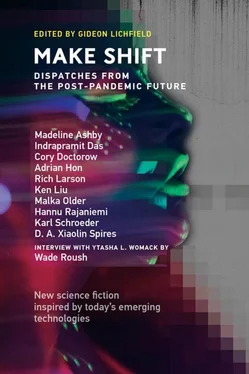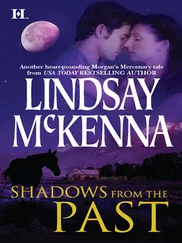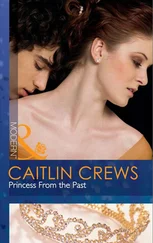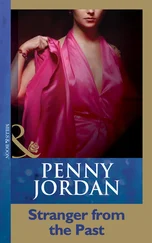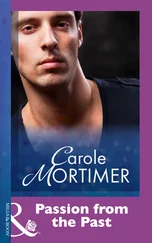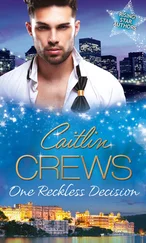Many African cosmologies from the Dagara to the Yoruba are inherently interdimensional, as evident in the symbolism of the art and architecture. The narrative of hope that often threads the tougher times is about moving forward. That said, I think Afrofuturism, the term itself, was popularized during Barack Obama’s presidency in part because it gave some people context for him existing. Shortly before his presidency the idea of a man of African descent being president of the United States for too many felt like some distant utopia or creative science fiction. To paraphrase a quote in Afrofuturism by longtime activist Jesse Jackson, Sr., you can’t move forward with cynicism. That said, there’s a big demand for more stories and works by Afrofuturist creators.
WR:From your standpoint, is it getting any easier over time for people of color and LGBTQ voices to find an audience and make a living in sci-fi? And under sci-fi, let’s count TV, movies, books, comics, music, and all the forms through which the future is explored. Is the publishing and editing establishment in sci-fi becoming any less white and less male?
YW:There’s definitely a greater interest in diverse stories because the audience of sci-fi lovers are demanding it. People want to see stories that provide other insights into the human experience and the realm of the imagination. Independent creators on both the comics and literary side have been self-publishing works with diverse voices consistently to new audiences for the past decade or so. Publishers are responding to that demand.
WR:I’m a Marvel fan, so I have to ask you a question about Black Panther (2018), which had a Black director and a nearly all-Black cast and introduced mainstream audiences to Afrofuturism in spectacular and dazzling fashion. Has Black Panther made it easier to explain what Afrofuturism is?
YW:The success of Black Panther has made life easier for Black sci-fi creators. It was a gamechanger and gave everyone’s work a bump up. All these creators who were viewed as niche or fringe were suddenly at the center of this fascinating conversation around “Afrofuturism.” Creators could make very edgy experimental music, like composers Nicole Mitchell, Moor Mother, or Angel Bat Dawid, and could flourish in new ways because new audiences had a way to frame their work. Visual artists, writers, and theorists suddenly had a larger world to play in with their works.
WR:Do you ever worry that in the hands of a giant media conglomerate like Marvel/Disney, Afrofuturism might become too mainstream and begin to shed its more radical or leftist elements?
YW:We’ll see more mainstream works utilizing Afrofuturist ideas and creatives. There will be more people with a desire to create pulling from ideas in that arena. We’ve seen that in the past two years with both Marvel and DC. Whether people are doing work with large corporations or independently, both scenes ultimately complement one another. Black people will have a relationship to space, time, and the future regardless. Every Afrofuturist story isn’t Black Panther and I don’t think people expect it to be.
WR:Outside the United States, which regions and communities are producing the most notable and exciting science fiction? Are there any international sci-fi authors or books you’re enjoying right now?
YW:Brazil has a robust Afrofuturismo scene of theory and works. There’s a book called Afrofuturismo written in Portuguese that I’ve just ordered. I’ll have to translate it via Google until an English edition comes out. I spoke at a virtual conference of Brazilian Afrofuturists recently and I’m really excited by the depth of their work. Jelani Nias of Toronto, Canada, has a cool book called Where Eagles Crawl and Men Fly . Toronto has a robust scene and is home to the annual art show Black Future Month curated by Danilo McCallum and Quentin Vercetty. It’s also home to A Different Bookstore which has a great Black sci-fi and fantasy selection.
Afro SF: Science Fiction by African Writers edited by Ivor W. Hartmann is a good anthology. The book came out a few years ago and has a wide range of works from authors across the African continent, including Nigerian American Nnedi Okorafor. I’ve seen some great Afrofuturist short films and features from African creators from Kenya, Nigeria, and Cameroon. I’ve had some great conversations about dance theory as Afrofuturism with dancers from Ivory Coast, Senegal, and Cuba. The ideas in Afrofuturism are fairly understood within the African continent/diaspora, it’s just a question of whether people utilize the term to frame their works or not. In many parts of the world, the United States included, many within the diaspora just see what we’re calling Afrofuturism as life.
WR:Is Afrofuturism a potential template for other culturally inflected futurisms—say, Latinofuturism or Sinofuturism?
YW:I don’t want to say it’s a template. People all over the world have relationships to space, time, and the future with a unique cultural lens. However, the term has created ways to narrow the focus on literary works, music, and more from specific cultures. I think it’s given rise to conversations on the shared aesthetic and philosophical thought within other cultural lenses. It’s pretty exciting. Within African/African diasporic communities, the term “Afrofuturism” helped people to anchor and frame the works they were creating or ideas they were tossing about. I think terms like “Indigenous Futurism” and others are doing the same for Indigenous creators and helping audiences to find them.
WR:George Floyd’s killing became the tipping point in a national movement for police reform and seems to have led to a recognition that in this country, racism and policing are two sides of the same coin. Can Afrofuturism or other forms of sci-fi help us imagine a world where policing isn’t necessary, where mass incarceration is a thing of the past, or where the law is finally enforced equally without regard to skin color?
YW:Yes.
WR:In Afrofuturism , you quote activist Adrienne Maree Brown, who says abandoned urban communities like her home town of Detroit or post-Katrina New Orleans can feel like the post-apocalyptic places we see in sci-fi. But she adds that if you look deeper, you see how communities are rebuilding from within. She writes, “It’s not the end of the world, it’s the beginning of something else.” At the risk of sounding like a Pollyanna—since there’s nothing redeeming about a pandemic, or police killings—I wanted to ask whether you think there’s a prospect that the traumatic events of 2020 will challenge American communities to find creative ways to repair inequality, rebuild the healthcare and public health infrastructures, and end racism once and for all?
YW:To quote goddess practitioner Lettie Sullivan, a veil was broken during this period. Many have awakened to the fact that there are grave disparities and that they could consciously or inadvertently be contributing to [them]. In a very real way, people are thinking on how they are contributing to systems with hierarchies that kill people or complicate their lives. The widespread protests and the demands for more books to give historical framing around how we got here are all a part of that.
One lesson from COVID-19 is that yes, there are racial disparities in treatment and stress. However, walls, gentrified neighborhoods, and gated communities can’t protect people from a virus. It’s literally our ability to care for other people by wearing a mask that protects us all. The same can be said about racism. No one, in the end, benefits. Minneapolis is not a highly diverse city, and this mostly white city was in the midst of protests, fires, looting, and police attacks when people challenged the murder of a Black man by police officers. Who benefits from that?
Читать дальше
